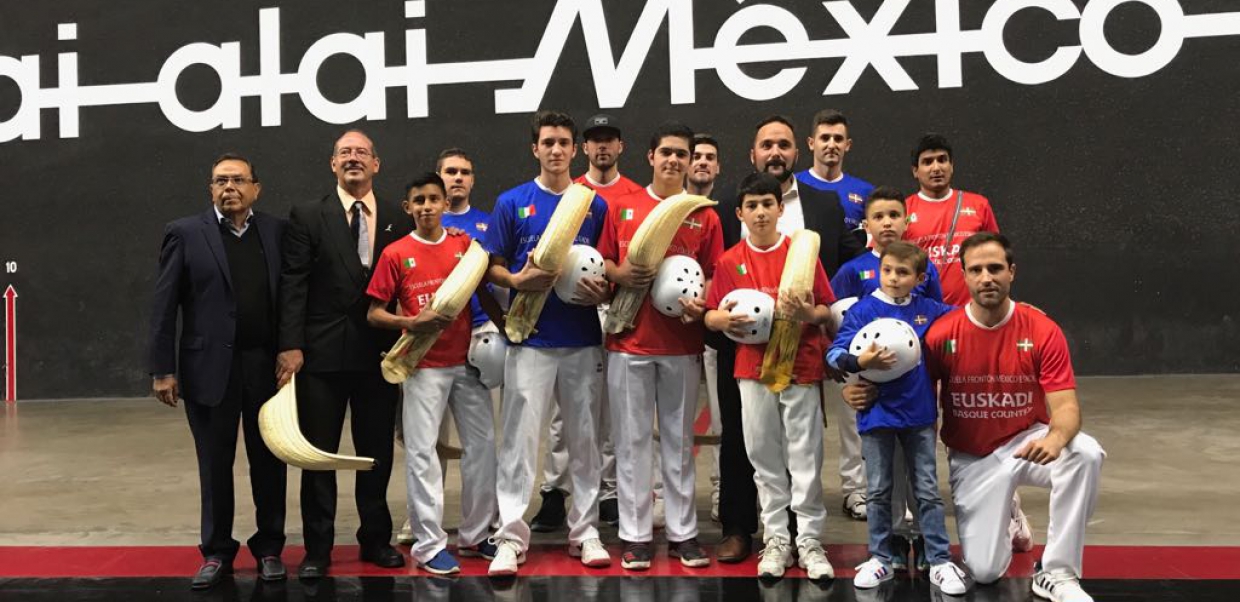School of Jai Alai opens in Mexico
2017/07/03
Euskara. Kultura. Mundura.
Cesta punta, or jai alai, is probably the most internationally exported Basque sport. From the Philippines to Mexico to the U.S. to Uruguay, for years thousands of people have gathered in frontons, or jai alai stadiums, to enjoy this spectacular sport known for speed, gambling and a festive atmosphere.
Cesta punta, or jai alai, is probably the most internationally exported Basque sport. From the Philippines to Mexico to the U.S. to Uruguay, for years thousands of people have gathered in frontons, or jai alai stadiums, to enjoy this spectacular sport known for speed, gambling and a festive atmosphere.
However, following the golden age of jai alai, on the 1970s and 80s, “the fastest sport in the world”, it waned rapidly due to the growing popularity of other professional sports, new ways of betting, labour disputes and economic problems within the companies sponsoring the game. (The documentary Jai-Alai Blues chronicles the rise and fall of the sport.)
Many frontons were forced to close, the Mexico Jai Alai among them. Built in 1929, the legendary art-deco jai alai stadium in Mexico City closed its doors in 1996. Following a twenty-year silence, the sound of pelota was heard again on March 12th, when the building was reopened.
The fronton is currently hosting a championship that will count for the Jai Alai World Tour Alongside the event is the official presentation of the jai alai school of Mexico City, supported in part by the Basque Government. Twelve young players are now enrolled in the school.
At the event, the Director for Youth and Sports of the Basque Government, Jon Redondo, said that jai alai “is an important part of our identity,” adding that it served to promote the image of Euskadi in the world. Redondo emphasized that the school would serve to promote the future of the sport beyond the borders of Euskadi.

